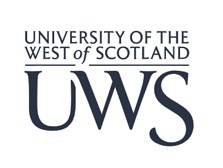Academics from UWS (University of the West of Scotland) have played a key role in the production of innovative thin film-based chips that will help prevent the spread of coronavirus.
Working in partnership with Glenrothes-based semi-conductor foundry Semefab, researchers Professor Des Gibson and Dr David Hutson – of UWS’s Institute of Thin Films, Sensors and Imaging (ITFSI) – have produced the technology that will be embedded in non-contact thermometers, with the firm receiving orders for more than 12 million of the chips from across the world.
Developed in conjunction with Semefab, through the University’s ITFSI and with funding from CENSIS and InnovateUK ERANET, the sensors embedded in the chips absorb infrared radiation, giving an accurate measurement of human body temperature without the need for contact.
This will prove to be crucial in the detection and isolation of patients with coronavirus – a symptom of which is increased body temperature–while also preventing the need for human contact; thereby helping to limit the spread of the disease.
Professor Gibson, Director of UWS’s Institute of Thin Films, Sensors and Imaging, said: “By reducing the need for close contact and the risk of cross-contamination, the infrared sensor technology to come out of UWS has real potential to have a global impact in the
fight against coronavirus.”
“This is a great example of the fantastic work that can be achieved when academics
and industry work together to find solutions to real-world issues.”
Professor Gibson, Director of UWS’s Institute of Thin Films, Sensors and Imaging
Allan James, Managing Director at Semefab, added: “The innovative collaborative project with UWS has provided Semefab with core technology which, combined with our high-volume production capabilities, brings this remote temperature sensing product to market.”
The infrared sensors are the latest project to come from UWS’s new state-of-the-art thin films laboratory at its Paisley campus.
The £12 million laboratory was officially launched by Scotland’s Chief Scientific Adviser, Professor Sheila Rowan.
The extensive upgrade and refurbishment of the University facilities has enabled the Institute to streamline and combine its research, development and commercialisation laboratories into one large, high-tech offering, which also includes the installation of novel, UWS-patented technology.
The investment into the new facilities will help the Institute continue to build on its successes, which, over the past five years, has won £7 million worth of external research and enterprise grants, as well as securing five patents and creating a new masters programme in advanced thin films technology.

https://www.semefab.co.uk/about-us/news/2020/semefab-chips-in-demand-to-help-fight-coronavirus/

